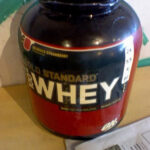If you practice running, you must feed yourself correctly in order to have enough energy to last the entire race, whether you compete or train. In this article we will give you some guidelines and tips to learn how to eat for running, making the most of healthy foods and habits in sports.

Obviously “every runner is a world” and some may not feel identified with any of these tips, but in general, we can establish some guidelines of what it would be better to avoid before going for a run, as well as knowing what you should eat or drink before and during training.
Among other things, it is always good to carry a drink, gel or energy bar with you to maintain your energy level during exercise. If you don’t have these products, you can opt for some homemade alternatives like the ones we propose below.
What do you need to feed yourself to practice running?
- Jelly
- chewing gum with sugar
- Sport drinks
Instructions to feed you to practice running
- Taking into account that in training sessions of 2 to 3 hours you consume between 30 and 60 grams of carbohydrates for each hour of exercise, it will be necessary that 2 to 3 hours before running training you eat a meal that provides between 200 and 500 calories.
- Sports drinks are well known, they provide between 15 and 20 grams of carbohydrates per 250ml. In addition, these carbohydrates speed up the absorption of energy. You can get a similar contribution of carbohydrates by mixing 2 teaspoons of honey, 8 teaspoons of sugar and a pinch of salt in a liter of water.
- Jellies sold in supermarkets can replace gels. These have between 20 and 30 grams of carbohydrates and also have electrolytes. It is better to take them with water to distribute the energy more quickly. Common jellies provide about 15 grams of carbohydrates.
- You can take some sugar gum with you to chew in case of need during training or the race. These replace Ride Shots that contain between 5 and 10 grams of carbohydrates each. They are easy and quick to take.
- Power bar energy bars provide between 20 and 50 grams of carbohydrates and also provide a good amount of protein, helping you to finish the race or training without going hungry. A more natural alternative is the fig bars that provide between 20 and 25 grams of carbohydrates and about 100 calories.
- If you run you must take care of your calorie intake, you can limit your calorie intake but never below 80% of what your body needs. You should also not start a diet and start running at the same time, because this is when your body needs more “fuel” to run.
- We know that fruit is an essential food for a healthy state, but if you practice running you must take into account which ones you can eat before training and which ones you can’t. If you are going to train for more than 2 hours, you should avoid fruits that contain sugars that are quickly absorbed, so we will leave aside melon, watermelon, kiwi, even peach and apricots.
- If you will train for about an hour, avoid fruits that contain sugars that are absorbed slowly, as their effect on the energy level will appear when we are already in the shower. These fruits are: strawberries, apple, cherries, grapefruit, orange and pear.
Tips to eat for running
- If you feel weak or dizzy while running, we recommend that you quickly drink some type of mineral salts or water.
- Juices, cereals, dairy or energy drinks are some foods that are best taken after training.

















